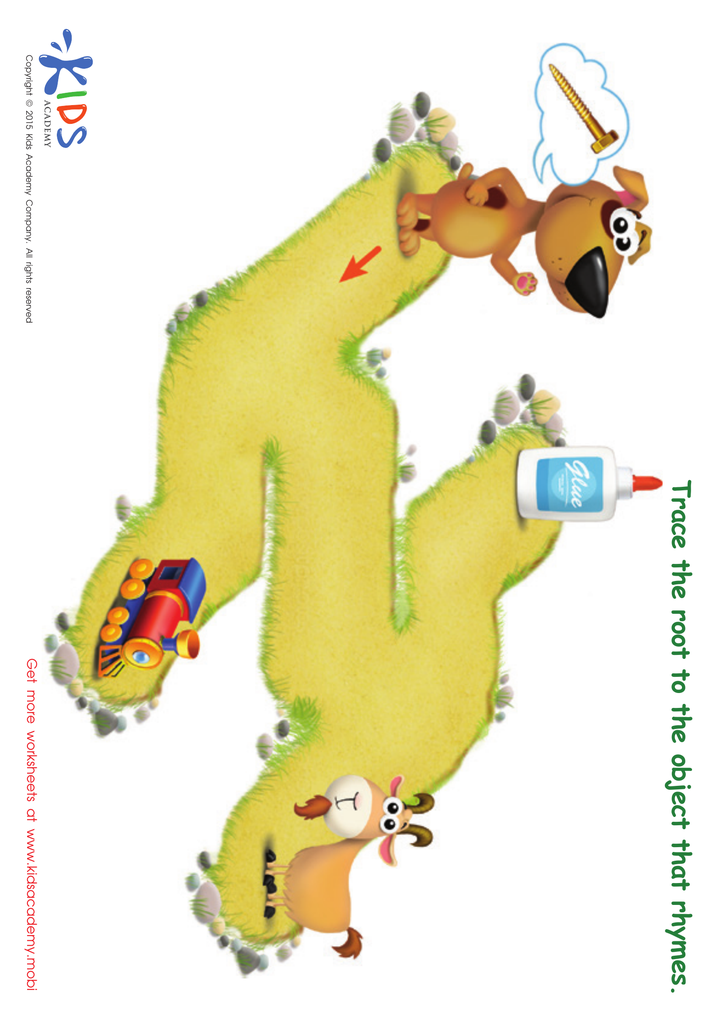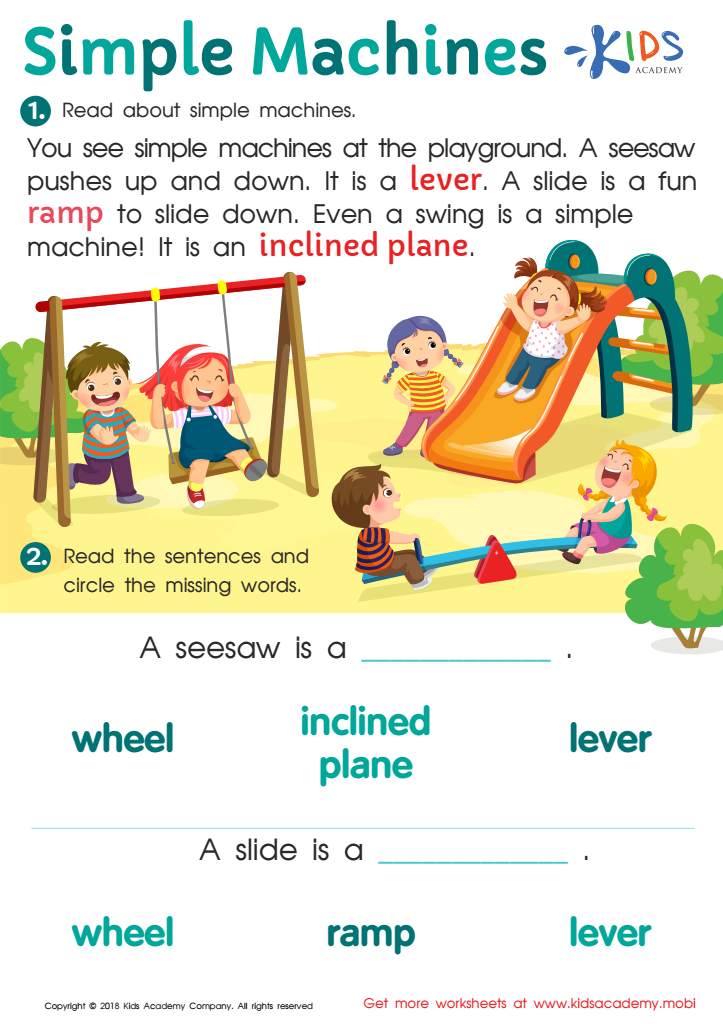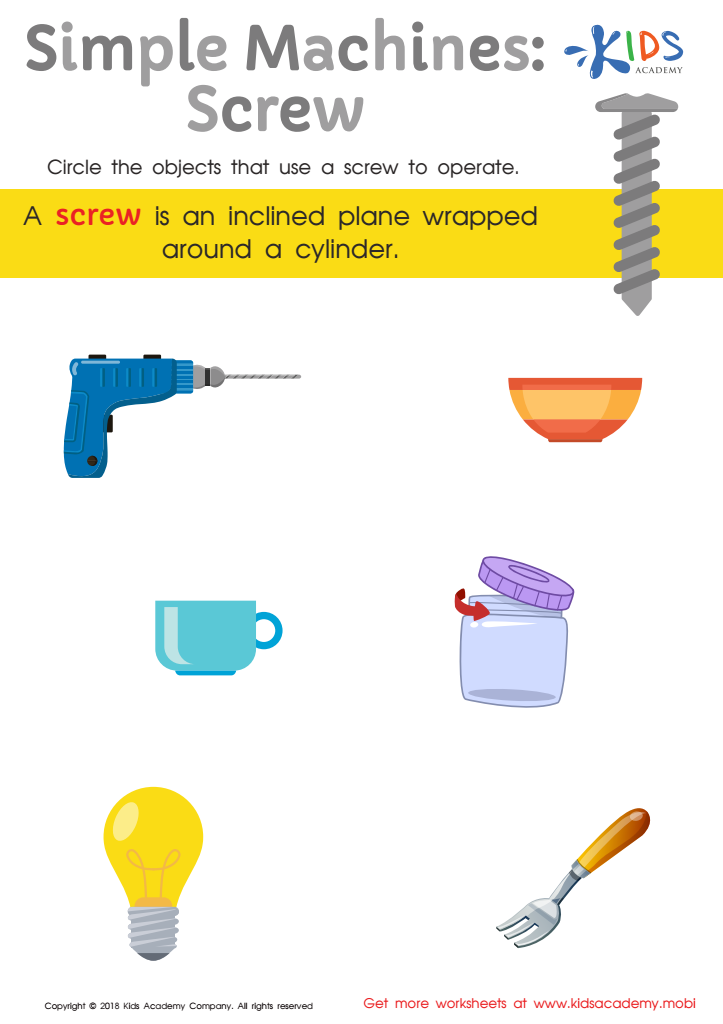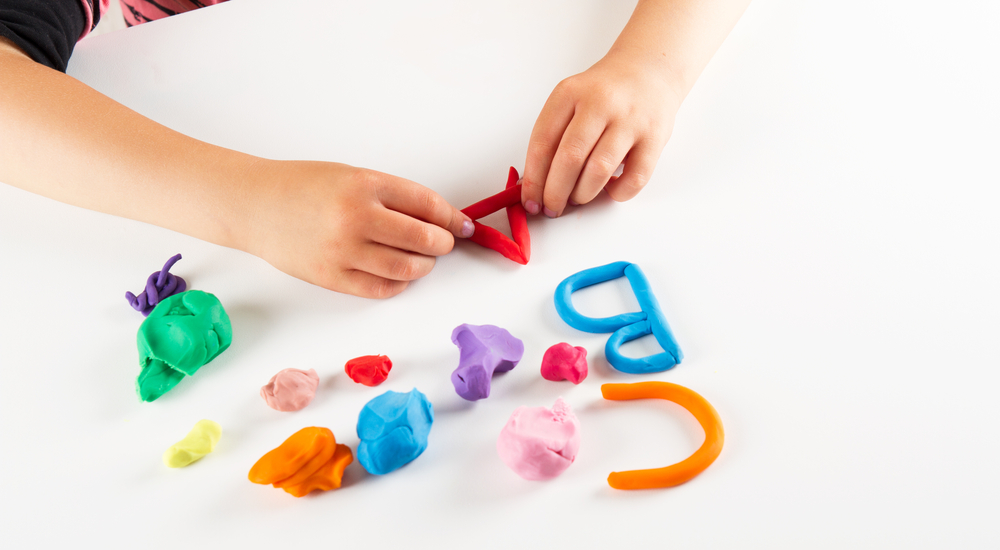Understanding Simple Machines Reading Worksheets for Ages 3-8
3 filtered results
-
From - To
Discover the wonders of simple machines with our engaging reading worksheets designed for children ages 3-8. These worksheets help young learners explore basic concepts such as levers, pulleys, and inclined planes through fun, age-appropriate activities. Each worksheet fosters early literacy skills while encouraging critical thinking and problem-solving. With vibrant illustrations and interactive exercises, children will enjoy learning about how these machines make work easier in their everyday lives. Perfect for use at home or in the classroom, our Understanding Simple Machines worksheets are an excellent resource for nurturing curiosity and foundational understanding of physics in young learners.




Simple Machines Worksheet


Simple Machines: Screw Worksheet
Understanding simple machines is crucial for young learners aged 3-8 as it lays the foundation for problem-solving skills and critical thinking. Simple machines, such as levers, pulleys, and inclined planes, are fundamental concepts in physics and engineering. Introducing these concepts at an early age can spark curiosity and foster a love for science.
Parents and teachers play a significant role in shaping children’s understanding of the world around them. Engaging young minds with enjoyable and age-appropriate reading materials about simple machines can make learning fun and interactive. It promotes vocabulary acquisition as students encounter new terms and concepts related to physics.
Moreover, learning about simple machines encourages exploration and hands-on experiences. Parents and teachers can create activities using everyday objects, allowing children to see how these machines work in real-life scenarios. This practical application not only reinforces their understanding but also enhances motor skills and creativity.
Furthermore, instilling the importance of simple machines can inspire future innovators and problem solvers. As the challenges of the modern world become increasingly complex, nurturing young minds with fundamental scientific principles can lead to greater advancements in technology and engineering. Additionally, a strong grasp of basic concepts prepares children for more advanced learning in the future.
 Assign to My Students
Assign to My Students





.jpg)










